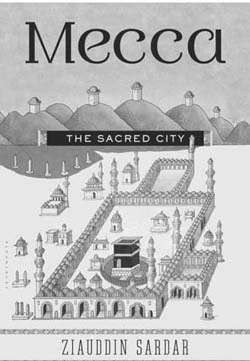In 2002, when I took up a posting in London with the Indian High Commis¬sion, Ziauddin Sardar, already estab¬lished as one of Britain’s leading public in¬tellectuals, was one of the most interesting voices in the argument that overshadowed all others, on whether the West, led by the US with the UK in tow, should invade Iraq to overthrow Saddam Hussein. It was a voice that raged, inflected with despair, of a prophet in the wilderness calling down a plague on both the houses he belonged to, the ummah, his spiritual home, and the West, to which he had migrated. The West, he said, was culturally arrogant, the regimes of the ummah despotic or bigoted; both were mor¬ally bankrupt. It was clear that this was not just an intellectual debate or a matter of poli¬tics for him, but a tussle for the soul of the two civilizations that had shaped him, and which were now bringing out the worst in each other. That tension between worlds also runs through this fascinating book on Mecca.
July 2015, volume 39, No 7

